Press Release
South China Morning Blues: Stories that detail a life in 21st century China for Asians and Gweilos alike
China. To the rest of the world, it is a booming, menacing powerhouse that threatens to engulf everything with its ever growing economy. To those who reside in it, it is more complex than that. As the author of a new novel aptly puts it, the country is “a land of contradictions, with endless construction of futuristic skyscrapers juxtaposed against shantytown-style villages.” Although China may be a looming threat to the likes of the West, the country itself is a mixture of old and new. It is a country where hundreds of conglomerates make millions, yet where hundreds of millions more still make their living as farmers. China is burdened with its identity, desperately trying to push forward and solidify itself as a booming, first world country while still fighting its heavy, Communist past. That fact is none so more prevalent than to the people who reside in this 21st century land.
“South China Morning Blues is a treatise on the modern state of relationships in ‘Rising China’,” says author Ray Hecht. “From expats to locals, the novel explores what kind of people end up in megacities in China, and how the new economic landscape treats the human condition. The ensemble cast of characters range from English teachers and journalists to jaded businessmen and party girls.”
Told using multiple first-person narrators, the voices shift and paths cross, which is intended to convey the grand scope of the setting. “South China in the 21st Century is the most engaging place on Earth,” says Hecht, “and this novel intends to immerse the reader right in the thick of it.”
The novel is split into three parts, with the first taking place and following the lives of six characters in Shenzhen, the second following six new characters in Guangzhou, and the last part taking place in Hong Kong, where all the characters meet and interact in various settings, and where the story climaxes at an island beach party.
The novel’s colorful cast of characters all span different backgrounds and races. In Shenzhen there is Marco, a Caucasian international businessman who believes he owns the world and all the women in it, but who ultimately gets his comeuppance at the end of the first act. A hundred kilometers away in Guangzhou there is Ting Ting, a young and unstable artist from Beijing who slowly becomes more recognized throughout the span of the second act, and yet struggles with her unexpected success. Although very different from each other, the characters are certainly believable, and, just as in real life, they all come across their ups and downs throughout the length of the novel. As to how Ray came up with this mix of deviants…
“I observed many individuals in the expat party scene and realized that many of them were colorful enough to make great fictional characters. As authors always do, I amalgamated some people and shifted around genders and nationalities, and in the end I think I came up with some original takes. Not only that, but I believe every single fictional character is somewhat autobiographical in nature by representing different aspects of the author’s own personality.”
In regards to Hecht’s own experience with the subjects dealt with in the book: “As far as certain scenes involving sex and drugs, I may have limited experience. But I hear things. Some of the themes in the novel involve betrayal, feelings of rejection, and family issues. I think all human beings have to deal with these things at times. In a novel, at least we can try to process the way people treat each other within the framework of a story. That may even help us deal with challenges in the future, and I hope that readers can relate to some of these experiences.”
Hecht himself arrived in China in 2008, and was immediately fascinated.
“I had already written two novels while a film student in southern California, and I hoped that living in China would inspire me. And inspire me it did. I’ve always enjoyed reading, and have been writing seriously since my early twenties, and once I came to China I started working as a freelance journalist in the English-language media scene. It was helpful to be part of a community, and even though I was an outsider at first, here everybody was an outsider at first, so people were welcoming and helped me along my way. I started with travel writing, but my heart was always in fiction.”
“I can be an introvert and I like that writing is mainly a solitary pursuit. One can go out in the world, have experiences, and then sit home alone to sort out what happened in a personal way. My least favorite thing about writing is that it is surprisingly hard work. It can be mentally exhausting to write thousands of words a day. When working on a journalism job, which tends to be only 500 words or so, it’s easier in the time-consuming sense but difficult because it’s a job and there may not be any creative inspiration.”
“It’s frustrating when a story takes longer than it should to develop. A bad draft comes easier than a good draft, but any draft is better than nothing at all. After many years of practice, many years of bad youthful writing, I can at least churn out something when a deadline approaches. I simply go through my notes and outlines, which I scribble constantly as inspiration comes at random hours of the day, and force myself to write a certain number of words. 500 words in an hour, a thousand words for an evening, that kind of thing. The words — for good or ill — always come.”
As for what best motivates him: “The best way to get some spark and motivation is by reading. I enjoy stocking up on novels and comics at libraries, book swaps, and often spending too much money at Hong Kong English-language bookstores. Keeping up with the latest from, say, Neal Stephenson or Irvine Welsh is important to me. Even reading Chinese-language children’s books in my Mandarin studies is helpful.”
Whether you are already experiencing China first hand, or if you are merely curious for an insider’s view on this emerging country, South China Morning Blues will give you a taste of life in 21st century China.
— Sam Rossiter
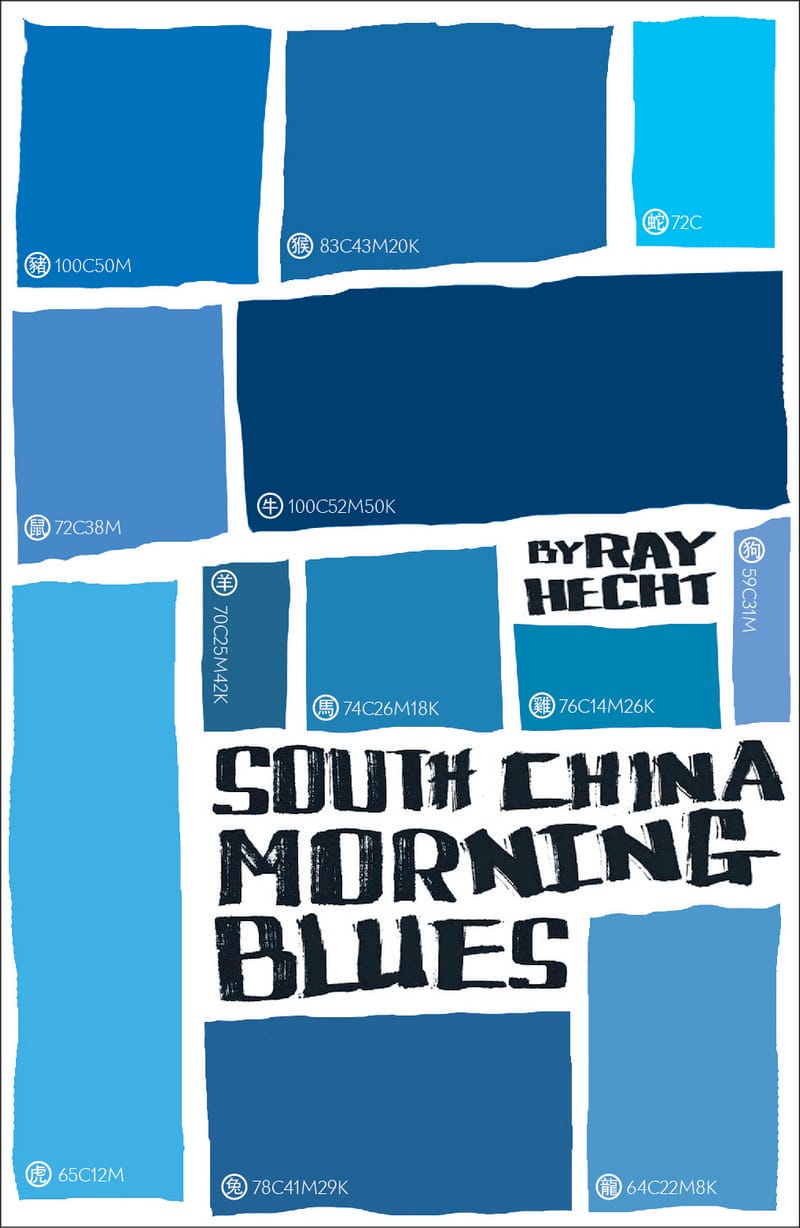
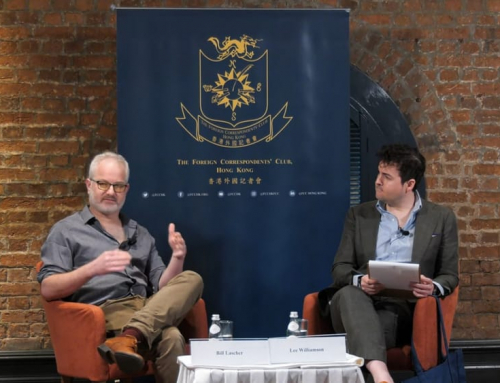
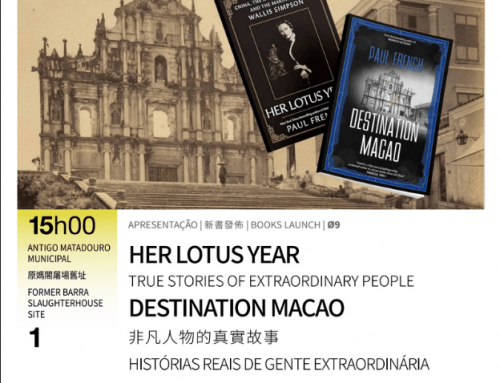
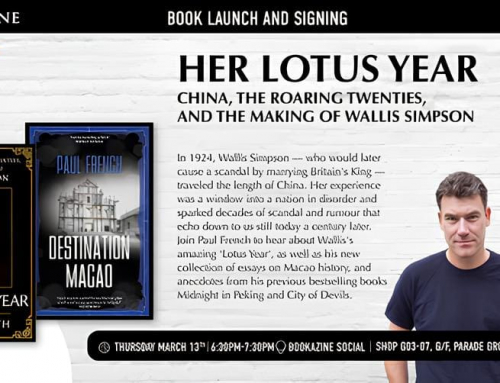
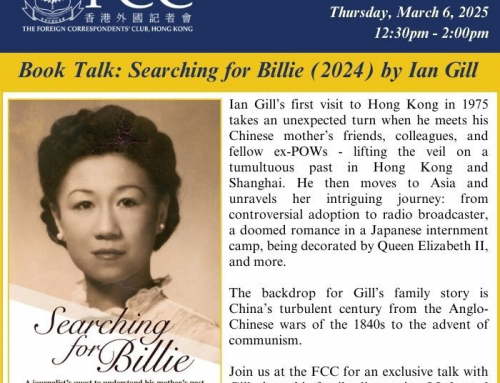
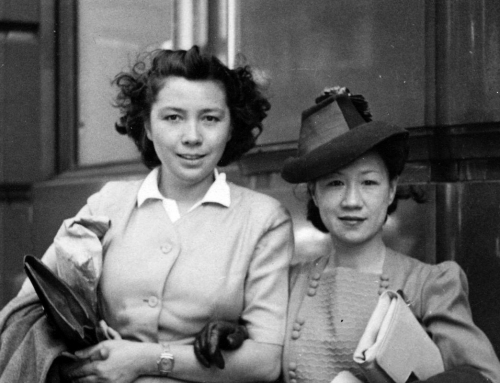
Leave A Comment